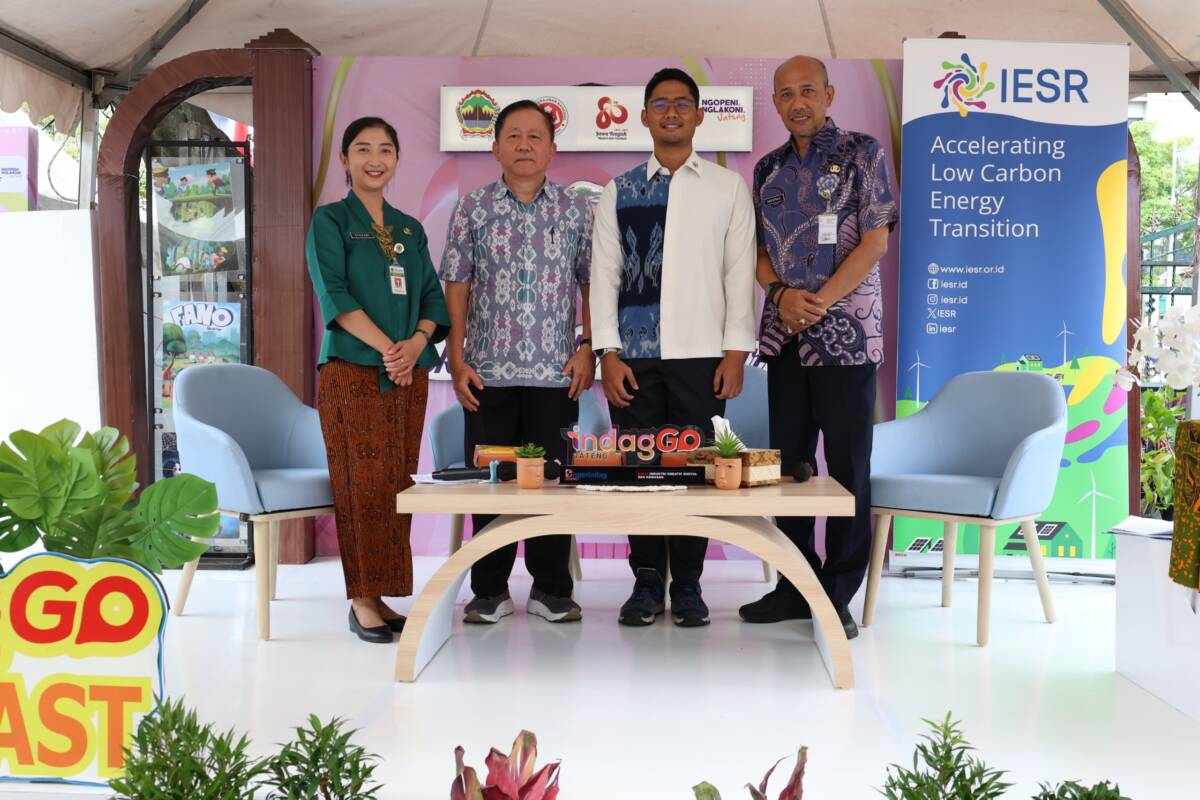Semarang, August 21, 2025 – Central Java plays a strategic role in supporting Indonesia’s national economy through its continuously expanding industrial sector. In 2024, the manufacturing industry emerged as the largest contributor to the provincial economy, accounting for approximately 33.84 percent of the regional GDP, according to data from the Central Statistics Agency (BPS) of Central Java Province. Given its significant contribution, the industrial sector in Central Java is increasingly expected to embrace green industry practices amidst the ongoing climate crisis.
Agus Prasutio, Head of the Economic Bureau of the Central Java Provincial Secretariat, emphasized the government’s commitment to accelerating the adoption of green industry practices across the province. He highlighted that Central Java recently ranked third nationally in the category of Regional Governments with the best green industry implementation in Indonesia. While this recognition is a milestone, Agus stressed that the true measure of success lies in ensuring industries consistently adopt and uphold green industry standards.
“One of the measures we have taken, through the Central Java Office of Industry and Trade (Disperindag), is the issuance of a Governor’s Circular on accelerating the energy transition by promoting the use of renewable energy within the industrial sector as part of the shift towards green industry. This regulation is intended to encourage industries to adopt greener practices,” Agus stated during a Public Talk event held at the Central Java Governor’s Office Courtyard (21/08).
In addition, Agus noted that Disperindag is currently preparing to establish a Regional Green Industry Forum, which will serve as a platform for small and medium-sized enterprises (IKM) to meet green industry classifications while also providing the necessary support mechanisms. Looking ahead, the provincial government also plans to introduce special awards for green industries at the district/city level as an incentive to encourage broader adoption of sustainability principles among industrial players.
Furthermore, Rahmat Jaya Eka Syahputra, Coordinator for Industrial Stakeholder Engagement, Industrial Decarbonization Program at the Institute for Essential Services Reform (IESR), underscored that the green industrial transformation in Central Java is not only aligned with national policies to achieve Net Zero Emissions (NZE) by 2060 or earlier but is also being driven by global market and consumer demands.
“For instance, the European Union’s Carbon Border Adjustment Mechanism (CBAM) will soon be applied to imported products such as steel, cement, ammonia, and energy. Moreover, the growing demand for sustainable industrial practices means that domestic industries can no longer afford to delay change and must swiftly transform towards green industry in order to remain competitive,” Rahmat explained.
Rahmat also highlighted the importance of intensive collaboration among all stakeholders, including those at the district and municipal levels. To accelerate the green industry transition, cooperation must extend beyond inter-agency coordination. Local Industry and Trade Offices must be actively encouraged to provide direct support to IKM within their jurisdictions, ensuring that the process is implemented more effectively and on a larger scale.

